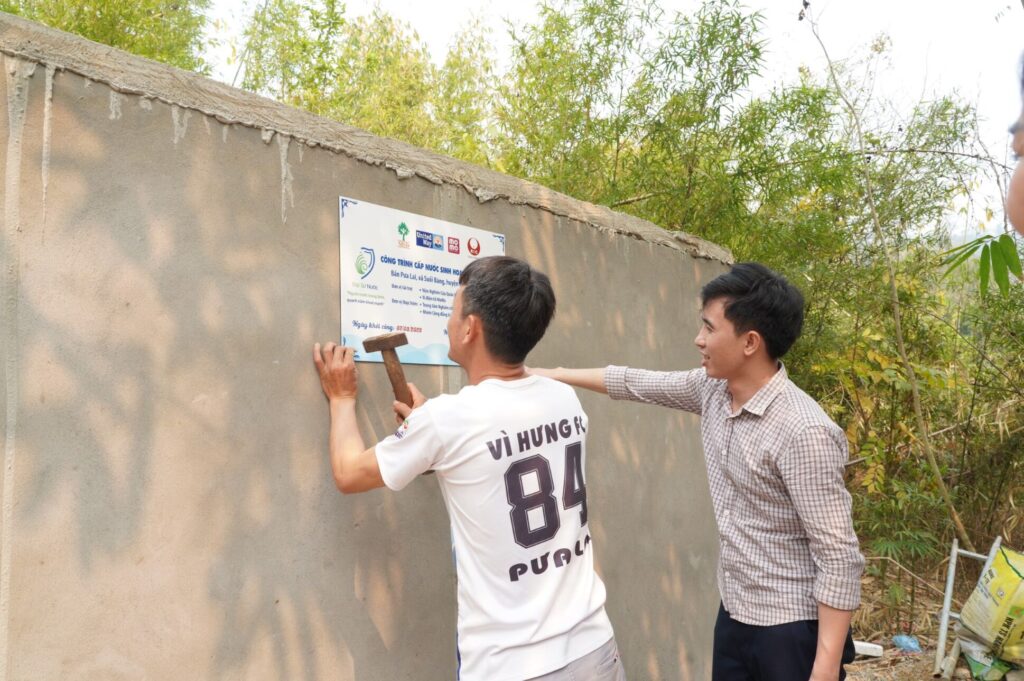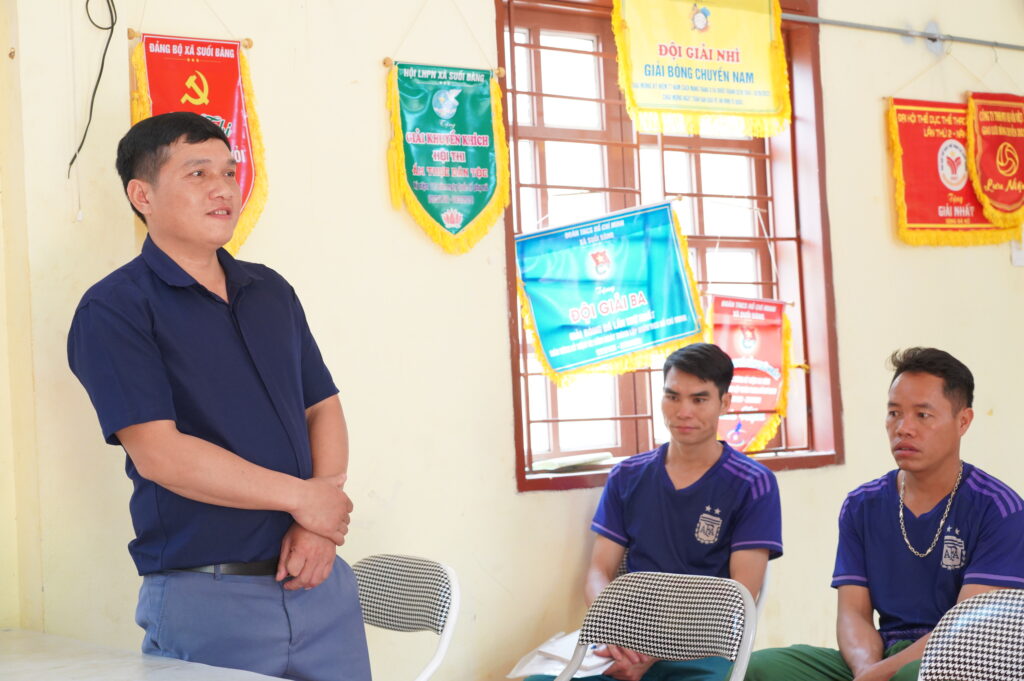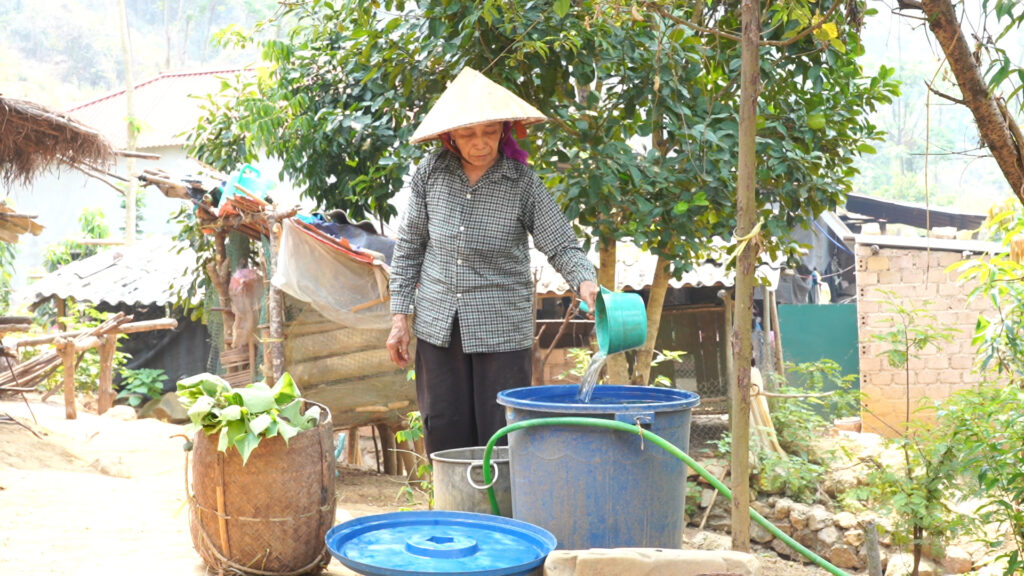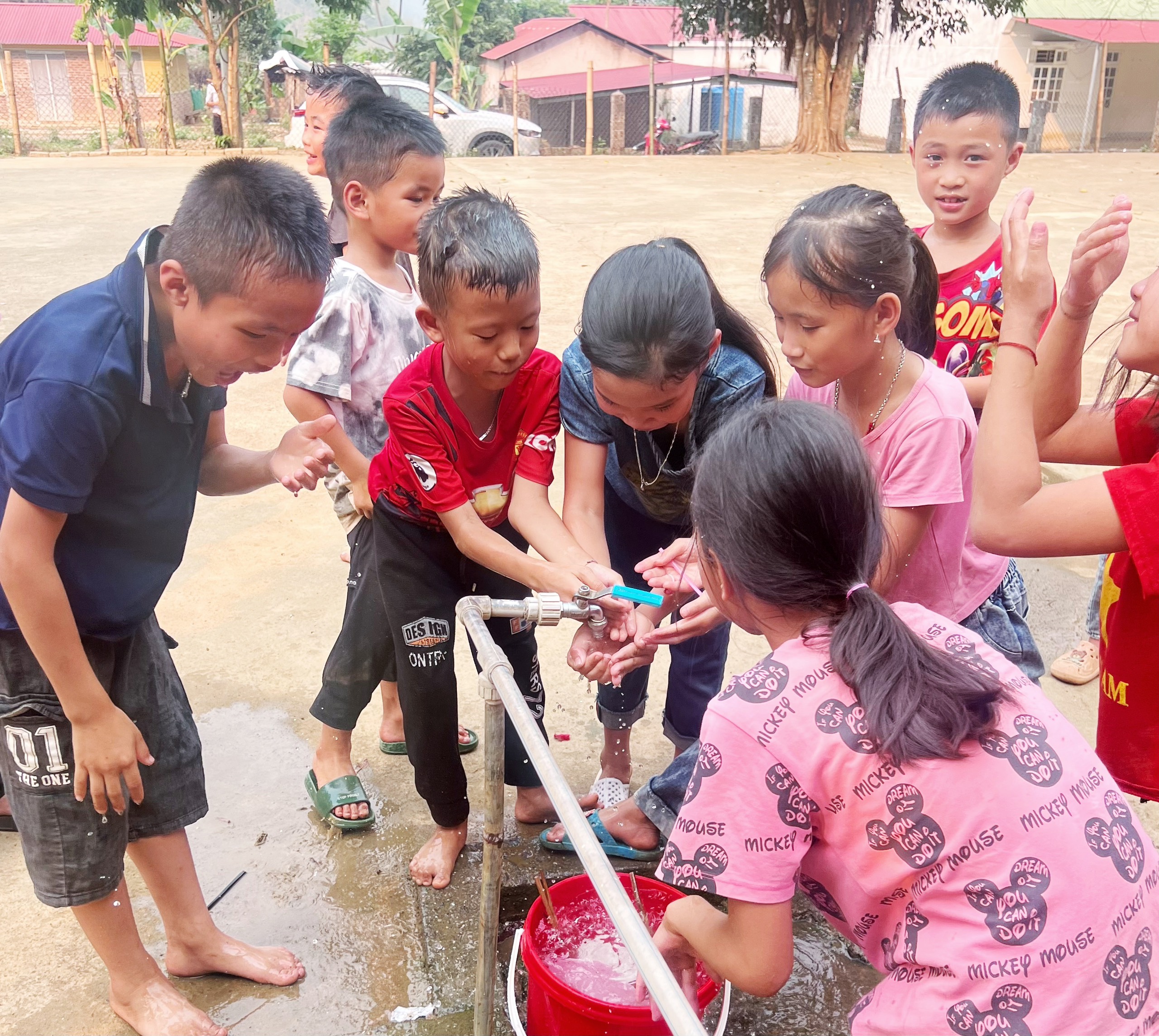On the occasion of World Health Day (April 7), which also coincides with the peak of the dry season in Van Ho, Son La, the Management and Sustainable Development Institute (MSD United Way Viet Nam), in collaboration with the Research Center for Community Development Initiatives (RIC), representatives of the People’s Committee, and local residents of Van Ho district, Son La province, organized a field monitoring mission, and held groundbreaking and inauguration ceremonies for critical clean water projects in four communes: Chieng Cang, Pua Lai, and Suoi Bang. These efforts have brought much-needed, hygienic, and life-sustaining water to nearly 700 residents in the area.

Specifically, the delegation organized a groundbreaking ceremony for the maintenance and repair of a clean water facility in Tan Thanh village, Chieng Cang commune; inaugurated a clean water facility in Pua Lai village; conducted the acceptance of water facilities in Chau Phong and Suoi Bang villages; and carried out a survey to prepare for the construction of a new facility in Song Khua commune. All these locations are extremely disadvantaged communes within Van Ho district, Son La province. These efforts are part of the “Water Ambassador” project implemented by MSD United Way Viet Nam in collaboration with local partner organizations, aiming to bring clean water to remote and underserved communities, thereby helping ensure water security and improve local living conditions.
Both Chau Phong and Pua Lai villages, located in Suoi Bang commune, Van Ho district, Son La province, are remote mountainous areas classified as extremely disadvantaged. With 100% of the population being ethnic minorities, each drought season brings severe shortages of water for daily use and agricultural production. Most households rely on natural water sources such as small springs or streams, which are insufficient for daily needs and agricultural activities, and often do not meet hygiene standards. Notably, these water sources are now heavily polluted due to upstream agricultural activities, including contamination from pesticides and livestock waste. This poses serious health risks, especially for women and children, who are particularly vulnerable to gastrointestinal diseases, trachoma, and other waterborne illnesses.

Mrs. Dinh Thi Hue, a resident of Chau Phong village, shared: “Before the water facility was built, we tried to divert water from upstream or collect it from natural springs. But since people raise livestock and farm upstream, sometimes the water had a very unpleasant smell. Using that kind of water long-term is definitely harmful to our health — especially when it's contaminated with pesticides, which are full of chemicals. That could easily lead to cancer. We know it's dangerous, but since there’s no other water source, we had no choice but to use it.”
Mr. Dinh Van Toan – a local resident of Pua Lai village – shared:“Water from natural springs and streams can’t really be considered hygienic. For adults like us who are used to it, maybe it’s not a big deal. But the kids have weaker stomachs, and they often complain about stomachaches. The problem is, it’s really hard to find a better water source around here. The good ones are too far away, we just can’t bring the water back to the village.””
By constructing upstream filtration tanks, diverting water from natural sources or drilling and filtering well water, maintaining and repairing existing water tanks, building new distribution tanks, and installing pipelines to bring water from the source to residential areas, local people no longer have to travel long distances to collect water. The filtered water now available is also much more hygienic and safer for daily use. The inauguration and acceptance of the two water facilities have brought clean water to 415 residents in Pua Lai village and 121 residents in Chau Phong village, including more than 150 children, significantly improving the health and quality of life of the local community. The project was made possible through the joint efforts and contributions of the Piggy Bank Lovers Community, MoMo Super App, MSD United Way Viet Nam, the RIC Center, and the local communities.

Speaking at the inauguration and handover ceremony, Mr. Hoang Van Khun, Vice Chairman of Suoi Bang Commune, Van Ho District, Son La Province, shared:"We are deeply grateful to MSD, RIC, and MoMo for joining hands with our community to build these two clean water facilities. Beyond simply bringing water to the people, the project holds deeper meaning: it was developed through collective discussions, joint decision-making, and the shared efforts of everyone in the community — from planning and construction to future maintenance and management. This community-led and community-managed model will ensure the facilities are used effectively and sustainably over time. The project is especially meaningful as it brings clean water during the peak dry season. With this system in place, our people can feel more secure about the quality of their water, enjoy better health, and no longer struggle as much to access clean water for their daily needs.”, bà con sẽ yên tâm hơn về chất lượng của nguồn nước, được đảm bảo sức khỏe hơn, và đỡ vất vả hơn trong việc lấy nước sạch để phục vụ cho nhu cầu sinh hoạt của bản thân và gia đình”
Mr. Vi Van Luyen, head of the community group in Pua Lai village, also shared: "We’ve been struggling with water shortages for so long, so now that we finally have enough, the whole village will work together to figure out how to use the water efficiently and take good care of our facility.”
On this occasion, MSD Institute and RIC also began the maintenance and construction of key components for a clean water facility in Tan Thanh village, Chieng Xuan commune, Van Ho district. The project aims to provide clean water for 33 households, totaling 147 people, including 68 women and 38 children. The facility is expected to be completed by April 2024 to help the community better cope with the ongoing drought. Continuing their field mission, MSD United Way Viet Nam and the RIC Center also conducted on-site surveys in preparation for building two additional water facilities in Song Khua commune, Van Ho district, furthering their journey to bring clean water to communities in need.
Sharing about the journey of the Water Ambassador to remote areas, Mrs. Nguyen Phuong Linh, representative of MSD United Way Vietnam, shared "Clean water is a precious and essential resource for life. That’s why we are deeply committed to bringing clean water to communities in difficult, remote, and disadvantaged areas — helping to improve quality of life and safeguard public health, especially for children. What makes Water Ambassador unique is its community-led approach. The community itself engages in discussions, jointly identifies priorities, decides on suitable infrastructure solutions, and contributes both labor and materials to complement the resources mobilized by MSD and RIC. The community also takes full ownership of the facilities — from usage to maintenance and long-term upkeep. Thanks to this model, the clean water projects we have implemented over the years continue to operate effectively and are regularly maintained. On behalf of MSD and RIC, I would like to sincerely thank our generous donors, the Piggy Bank Lovers Community from the MoMo Super App, and partner businesses for accompanying us on this meaningful journey to bring clean water to communities — so that no one is left without access to safe water, waterborne diseases are reduced, and no one is left behind."


With the recent groundbreaking, inauguration, and handover of three clean water facilities in Van Ho district, Son La province, MSD United Way Viet Nam and its partners have, to date, supported the construction, maintenance, and repair of 37 clean water systems across more than 10 remote and underserved provinces. These efforts have helped improve the lives of nearly 23,000 people, including many children. Looking ahead, in the second half of 2024, MSD Institute and its partners plan to continue mobilizing resources to build five additional clean water facilities in Hoa Binh, Son La, and Long An provinces.
—————
MSD continues to receive donations through the following bank account:
Vietcombank
– Account name: CT CP DNXH MSD UNITED WAY VIETNAM
– Account number: 1032657207
– Bank: Vietcombank, Ky Dong Branch
Tài khoản Thiện nguyện MB Bank số 1022

